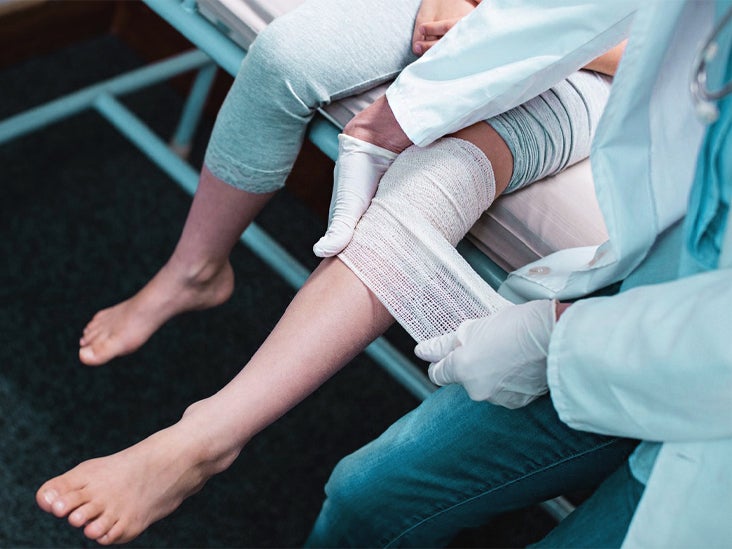An Injured Limb Should Be Kept Above Heart Level
An injured limb should be kept above heart level. What is difference between an epidemic and a pandemic.

The Rice Age Is Over It S Time To Melt Acute Injuries Innate Chiropractic
Because the blood will try to rush to it.

. In fact you may want to get a pillow specifically. Keep your hand above your heart. An injured limb should be kept above heart level.
This will help decrease swelling and pain. It makes a big difference. The answer is true that is an injured limb should be kept above the heart level.
Search for other answers. Performed in the six stations. Keep the extremity AT HEART level NOT belowremember you want to maintain arterial pressure and elevating it above heart level will cause more ischemia loosen and remove restrictive items.
Log in for more information. Elevating your hand means that you need to keep it at a level above your heart. You can also apply a pressure bandage NEVER use a tourniquet.
It is a method of self-care to use right after you experience a minor injury. Treatment method for the first 48 to 72 hours after your injury. It can also be used to relieve the pain of closed fractures.
Besides elevation there are also other treatment options that may help reduce swelling and inflammation including. Do not raise your arm or leg higher than your heart. The key to reducing swelling with elevation is to get the injury above the level of your heart.
During this time you should keep the injured area wrapped with an elastic bandage elevate it when you. An injured limb should be kept above heart level. It is important to immobilize an injured limb in order to _____.
Because of this it may be helpful to use a pillow to help elevate your legs. This decreases blood flow to the area which means less swelling. Check for proper fit.
An injured limb should be kept above heart level True There are different methods to respond to acute sports injuries depending upon whether the player is conscious or not. If you cant youll want to raise it so that its as high as possible. Please select the best answer from the choices provided.
If possible raise an injured limb above the level of the heart. List or describe a weight-bearing activity you could do in daily life that uses the same movement as each of the activities you. Elevate your arm or leg after an injury.
Your answer is going to be c. Health 23062019 0431 NeedsMajorHelp. An injured limb should be kept above heart level.
Dont remove the gauze or bandage. Calmly reassure the injured person. Prevent it from being injured further B.
You keep the bite area lower than the heart - because it slows the circulation of the injected venom through the victims blood stream. An injured limb can only be kept above the heart level only if the injury is critical but in a situation whereby the injury is not critical applying force will stop the bleeding. Compressing injured area with a bandage.
This helps the blood circulation and can reduce swelling and bruising. Stands for Rest Ice Compression Elevation. Other questions on the subject.
Allow your body to overcome the shock of the injury. For decades direct wound pressure and limb elevation above the level of the heart were advocated as the standard initial steps for extremity hemorrhage control by first aid courses emergency care textbooks and Federal standards for the training of Emergency Medical Technicians EMTs 1-5. In order to get the best results from elevation you should raise the limb above the level of your heart.
Continue using the RICE. Do you know the answer. RICE quickly treats pain and swelling after an acute sudden soft tissue injury such as a sprain or strain a minor bone injury or a sports injury.
1 Get Other questions on the subject. Select the best answer from the choices provided. This is only the case in instances where there is major bleeding however as for smaller wounds simply applying pressure to the wound will do enough to restrict blood loss.
If it is a lower leg injury like an ankle keeping your feet up will decrease the fluid from pooling into your ankles. Notify the physician of course do this while you are simultaneously doing everything else. Prop it on pillows or blankets to keep it elevated.
Raise your arm or leg at the level of your heart as long as directed. If possible place the person on a rug or blanket to prevent loss of body heat. An injured limb should be kept above heart level.
An injured limb should be kept above heart level. If the bleeding seeps through the gauze or other cloth on the wound add another bandage on top of it. Slow the healing process D.
All injuries have bleeding from ruptured blood vessels from a bruise ruptured capillaries through to a ruptured artery. It doesnt really matter how much higher your hand is above your heart as long as it is positioned at least slightly above it. Remember that your legs need to rest above the level of your heart.
Experienced clinical providers found limb elevation especially in the. Help the injured person lie down. Make sure a brace or bandage you get after an injury is not too tight.
Elevating the injury higher than the heart reduces blood flow so if if is a closed injury there will be less bleeding into the tissues swelling if it is an open wound there will be reduced blood loss.

An Injured Limb Should Be Kept Above Heart Level True Or False Brainly Com

Equine Trauma And First Aid Emergency Medicine And Critical Care Merck Veterinary Manual

Pressure Bandage How And When To Apply Precautions

An Injured Limb Should Be Kept Above Heart Level Please Select The Best Answer From The Choices Brainly Com
Comments
Post a Comment